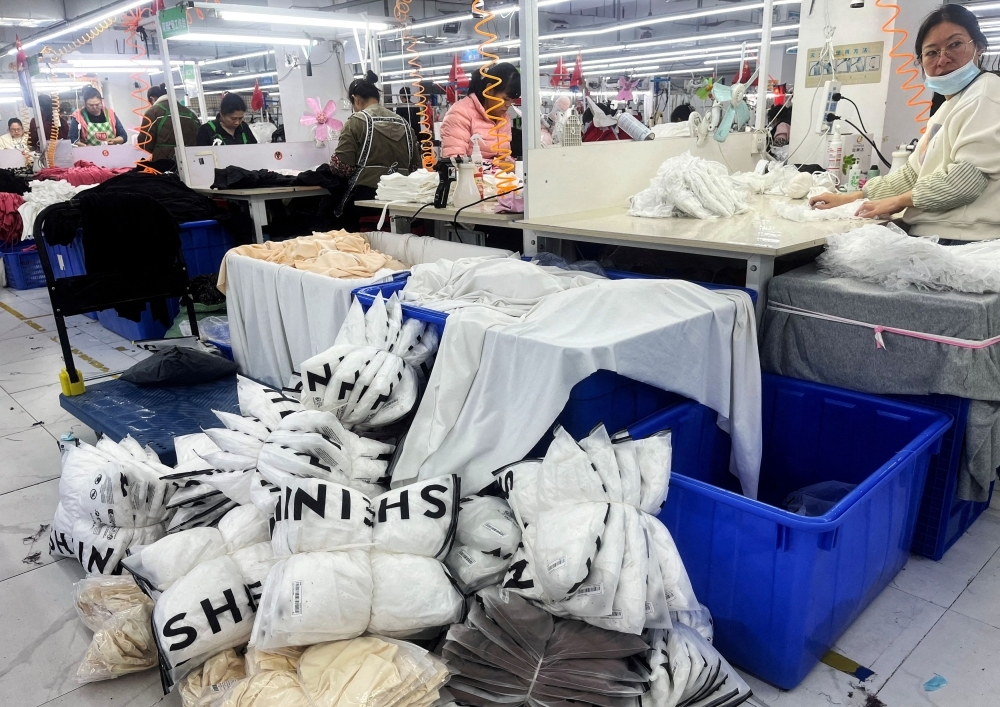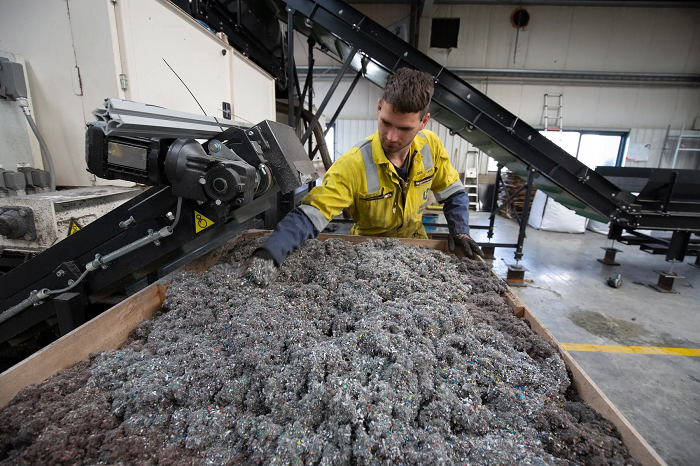FW
The World Bank plans to launch a project to support the eco-friendly initiatives of Ethiopia’s rapidly growing textile industry. The bank is seeking contractors to improve efficiency in textile mills around Ethiopia as well as lowering production costs and minimising environmental impacts. Industrial parks will be a key focus as they are the main tool being used by the government to develop the textile and footwear industries.
The project will support efficiency improving interventions which will lower the production cost and minimise environmental impacts that will consequently attract and retain investment. At a broader level, the project will decrease greenhouse gas emissions through the removal of regulatory barriers to the implementation of energy efficiency and water efficiency investments in the private and public sectors. By providing support to the government and relevant industries on sector specific interventions, the project will ensure that the textile and footwear sector remain competitive while the growth of the sectors is environmentally sustainable.
Vietnam’s exports grew 16.9 per cent in January-August. The country is on track to become the world's second biggest exporter of textiles and clothing this year. Textiles and clothing are Vietnam’s second biggest export and its leading industrial employer. Despite rising labor costs, the sector remains highly labor intensive, employing 2.7 million workers. That means five per cent of the country's total labor force and 20 per cent of its industrial workforce are engaged in producing textiles and clothing.
A combination of demographic and geographic advantages as well as an openness in trade policy gives Vietnam an edge over its competitors. The prospect of free trade agreements with the EU -- expected to be ratified this year -- and the original Trans-Pacific Partnership led to a jump in foreign investment. About half of the overseas investments in Vietnam's clothing and textile sector since 1998 have been invested in the past five years.
But Vietnam also needs to move up the value chain if it is to diversify into overseas markets. The country currently exports nearly half of all of its textiles and clothing to the US. As the country’s trade surplus with the US balloons, Vietnam will need to move up the value chain by developing homegrown textile manufacturing if it is to diversify into new markets.
A tariff war with China is on but retailers in the US are continuing to import merchandise in order to meet consumer demand. Imports at the nation’s major retail container ports are expected to remain at near-record levels this month. Retail sales for all of 2018 are forecast to be up at least 4.5 per cent over 2017.
The US retail industry plans to fight back against the negative impacts of the tariff wars. Tariffs are now in place on roughly half the goods imported from China and the trade war is still escalating. Retailers are doing their best to mitigate the impact on customers, but they are not able to quickly or easily change their sourcing. That means these tariffs will eventually mean higher prices for American consumers.
The third round of tariffs is now in place, an increase in the level of tariffs is coming, and further tariffs have been threatened. Consumer prices will inevitably start to rise. While cargo numbers do not correlate directly with sales, the imports mirror this year’s strong retail sales. Holiday season retail sales for 2018– excluding automobiles, restaurants and gasoline stations – are expected to increase between 4.3 and 4.8 per cent over last year.
India International Textile (IIT) expo will be held in Ichalkaranji, December 6 to 8, 2018. This is a one stop source for all textile requirements of worldwide buyers and a unique platform for Indian participants where they can gather information on the latest developments and trends.
Buyers from various countries are invited such as Sri Lanka, Bangladesh, UAE, Vietnam, Korea, Senegal, Zimbabwe, Mali, Malaysia, Australia etc. About a 100 Indian textile exporters will display a wide range of products with the latest trends and qualities under one roof. The product range will be suitable for all types of markets whether emerging or developed, ranging from yarn, fabrics to garments and made ups. Among these are textile fabrics, denim, industrial fabrics, made-ups and home textiles like bed linen, kitchen linen, bath linen, living and dining linen and technical textiles along with various types of yarn.
Ichalkaranji is one of India’s important textile/fabric manufacturing clusters with over 1,50,000 power looms including auto and high speed shuttle-less looms producing fine varieties of cotton and blended fabrics including industrial textiles. There are some 35 spinning mills producing a wide range of counts, ply yarns, ring and open end yarns and fancy yarns. Ichalkaranji is near the Solapur cluster is famous for its terry towel and designer chaddars and dhurries.
Recent media reports have suggested the US might label China as a currency manipulator, something it has often threatened to do since the early 1990s. But this according to Chinese experts would have little effect as the relationship between the two countries is already strained by the trade war and the imposition of huge tariffs by the US.
The trend of depreciation with the yuan is not as clear as with currencies in various other emerging economies, so the US would not have a strong basis for labeling China as a currency manipulator. The move could be an effort by the US to create an excuse for further actions regarding bilateral trade and investment, experts said.
Also, one key reason driving the depreciation pressure on the yuan is the trade war waged by the US against China, and the US is now complaining about the depreciation, Tan noted.
The IMF, which has applauded China's improved level of market-oriented economic structure, however is not likely to label China as a manipulator.
Levi’s net income for the third quarter grew 45 per cent. Revenues rose 10 per cent. Net income growth came primarily from lower income taxes, higher operating income and gains on the company’s hedging contracts compared with losses in the third quarter of 2017.
The strongest market for Levi’s was the Americas where revenues were up seven per cent. Direct-to-consumer business in the Americas grew 13 per cent. Europe was the company’s second largest market where revenues grew 17 per cent. Strong sales were seen in the women’s categories and tops. Direct-to-consumer business grew 15 per cent.
Asia’s revenues jumped eight per cent. The company now has RFID, or radio-frequency identification, in all its US stores to manage inventory more effectively and hopes to expand that globally and with its franchise partners within the next 12 months.
Levi’s, based in the US, has developed new marketing and advertising campaigns and partnered with influencers. Levi’s recently collaborated with celebrity Justin Timberlake for a 20-piece collection of menswear. Globally, Levi’s sells a T-shirt every second and has been doing so for the last two years.
The company has four brands: Levi’s, Signature by Levi Strauss & Co., Denizen and Dockers.
Lenzing, and he sustainable fashion designer Pawan Kumar, and denim manufacturer Saitex have come together to create a capsule collection that reveals new depths in denim. The capsule includes jeans, dresses, T-shirts, sweaters and jackets for both women and men. In addition to the core denim styles, complementary knits and wovens were produced by other sustainable mills, including Artistic Denim Mills, Artistic Milliners, Barutcu, Blue Diamond, Candiani, Cone Denim, Hallotex, Orta, Prosperity, Royo, Textil Santaderina and Tintex.
Vietnam-based Saitex produced the garments at its factory. Saitex has invested in industry-leading equipment that makes washing a more resource-efficient process compared to the inefficient belly washers used in traditional manufacturing. The factory’s electricity dependency and carbon footprint have been reduced with air-drying, as well as by using solar and other clean power sources.
Pawan Kumar blended a contemporary style with the glamorous attitude of the ’50s. He culled inspiration from the natural splendor of his native Mauritius and the urban sophistication of his current home, Los Angeles. The innovative fabrics made it easy for him to attain the specific wash effects and visual textures he wanted for his designs, which embrace sustainability from fiber to finished garment.
The collection boasts of denim fabrics made using Tencel lyocell and Refibra technology, Lenzing’s effort to build a circular economy.
As per Pakistan Bureau of Statistics (PBS) figures major leather export categories have shown lacklustre growth in this fiscal year. Export of leather gloves and leather footwear registered growth of 1.8 and 12 per cent respectively. However, leather garments which account for the bulk of leather exports went down 7 per cent on a year-on-year basis.
On monthly basis leather gloves and leather garments recorded growth of 40 and 20 per cent respectively. Growth has mostly been volume based whereas prices have seen a downward trend. This could be explained by the depreciation of the rupee whereas the rebates awarded under the government incentive package might also have played a part in boosting quantities.
The high cost of production has hampered growth in leather exports say stakeholders. Smuggling of live animals to Afghanistan has also created problems and put pressure on supply of hides and skins to leather manufacturers. There has also been a dearth of investment in balancing, modernisation and replacement (BMR) by most local players which have argued against the imposition of 4 per cent custom and 17 per cent sales tax on import of machinery.
Leading unions and labor groups in Pakistan have proposed their own safety ‘Accord’ similar to that of Bangladesh. These groups have claimed many factories that supply to Western brands have serious safety defects similar to those uncovered in the aftermath of Rana Plaza and have urged brands to support a Pakistan Accord for Fire and Building Safety.
Union and labor groups from Karachi, Lahore, Faisalabad and other cities met on the sixth anniversary of the Ali Enterprises fire in Pakistan which killed over 250 workers. The meeting was jointly organised by the Pakistan Institute of Education and Research, the National Trade Union Federation of Pakistan and the Labour Education Foundation.
Participants noted many similarities between the lack of workplace safety prior to the Bangladesh Accord and the current lack of implementation of fire and building safety standards in garment and textile factories and mills in Pakistan. The labor groups will now develop more detailed proposals for the nature and shape of a Pakistan Accord and these will be shared with international partners.
Kraig Biocraft Laboratories, the leading developer of spider silk based fibers, is finalising details of its first shipment of the company’s proprietary recombinant spider silk silkworm eggs to Vietnam. Kraig Labs will work in cooperation with leading sericulture experts in Vietnam, to demonstrate the performance and capabilities of the company’s uniquely developed silkworms, as it moves to expand the production of its recombinant spider silk from pilot to full scale production.
Due to the unique nature of this project, the company had to work hand-in-hand with government officials in Vietnam to develop the required regulations and protocols. It expects to complete all the required documentation for this shipment within the next two to three weeks and raise its silkworms in Vietnam in the fourth quarter.












